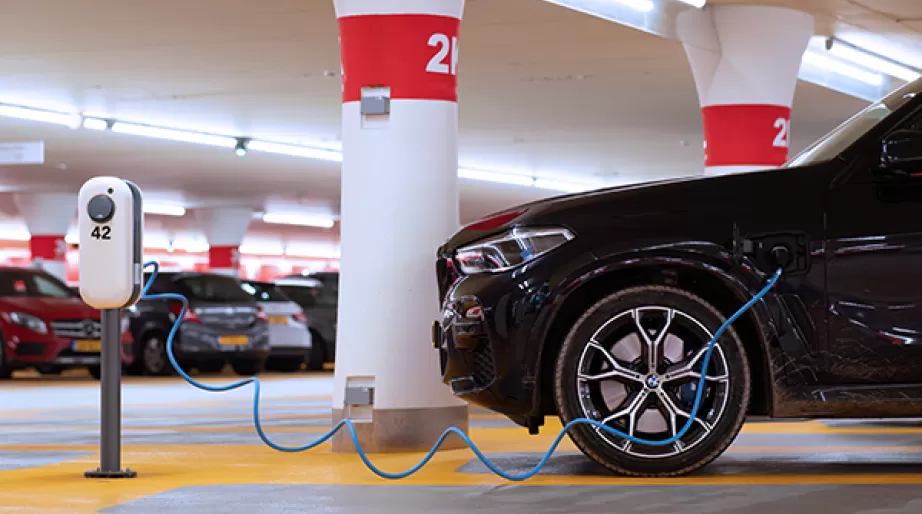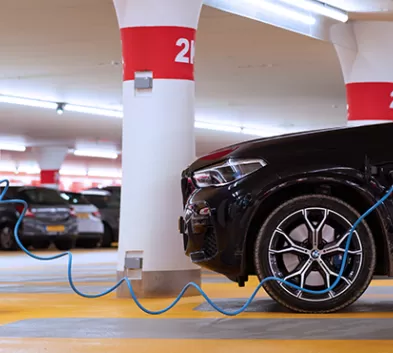4 Myths About Electric Vehicles - Debunked!


Times are a-changin': Elon Musk now owns Twitter, we're still wrapping our heads around NFTs and soon, we may be saying goodbye to gas-powered cars!
Welcome to the age of the Electric Vehicle (EV). Everyone knows the benefits EVs bring to the environment — that's why a key target of the Singapore Green Plan 2030 is to have all new car and taxi registrations be of cleaner-energy models.
Yet there's still a lot of doubt about EVs, so let's take a look at some misconceptions and find out if they're true!
MYTH 1: EVs Don't Last Long
We get it, the idea of your car depending on one battery can be scary! But most EV batteries are actually designed to last at least as long as the serviceable life of the car.
If anything, EV batteries are more sophisticated than standard batteries and are literally designed to sustain power over extended periods of time. Plus, their warranty lasts for several years!
EVs may feel like a new concept for some of us, but in reality, EV models such as the Nissan LEAF and Tesla Model S have been around for almost 10 years, providing an increasing amount of data about the longevity of EV batteries.
Battery aside, just keeping your EV in top condition is easier compared to regular cars, according to MSIG's very own motor surveyor Frederick Tan. "This is simply because EVs are equipped with diagnostic technology which can identify and notify us of the need for servicing or maintenance," he adds. "It really is like our smartphones that can track things like your sleep pattern and screen time."
MYTH 2: I Can Only Do Short Distances With an EV
While it's true that EVs have a shorter range than gas-powered cars, that doesn't mean we should underestimate how far an EV can go.
On a full charge, EVs can travel up to 342km — that's actually the average driving distance for Singaporeans in a week! In fact, some EV models on the current market have a maximum range of over 480km.
MYTH 3: It's Not Easy to Find a Charging Station For My Car
At the moment, there are 1,600 EV charging stations in Singapore. If that sounds like a small number to you, wait for it — Singapore's government plans to increase this to 60,000 by the year 2030!
And some good news for the short term: More than 200 public car parks may have charging stations too by Q3 of this year!
MYTH 4: I Have to Pay Much More For an EV
Not necessarily true! In line with Singapore's vision of 100% cleaner energy vehicles by 2040 and reduced peak land transport emissions by 80%, they've introduced a few initiatives to help ease the transition.
Under the Vehicle Emissions Schemes, EV owners can enjoy rebates of $15,000 or $25,000 — the amount depends on your EV make and model.
Plus, till December 2023, the Electric Vehicle Early Adoption Incentive (EEAI) further reduces the Additional Registration Fee (ARF) for electric cars from the current minimum of $5,000 to zero dollars.
That's not to mention that EVs have fewer car parts and thus, will require less frequent servicing. With rising gas prices a common gripe among drivers, you may also be glad to know a weekly battery charge costs about $11 only!
Conclusion
As with all things, EVs have pros and cons, and you'll need to do your homework. For example, did you know that due to the complexity of their systems, EVs cannot be modified? That's why Frederick strongly encourages doing your research on how to operate an EV. The good news is, EV manufacturers usually conduct training for new EV owners.
In line with Singapore's gradual shift towards full EV adoption, we're moving with the times too and now extending our motor insurance coverage to include EVs! Under MotorMax Plus, your car — EV or otherwise — enjoys coverage for accidental loss and damage, plus $100,000 worth of car loan benefits in the event of death in a car accident.
Whichever type of car you opt for, keep it — and yourself — protected. Find out more about MotorMax Plus here.


